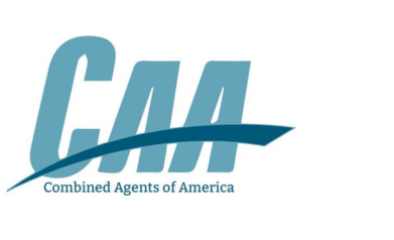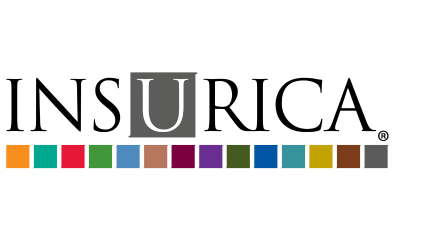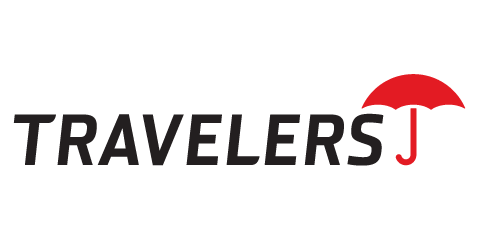The Texas Insurance Code permits an agent to charge fees to clients for services the agent agrees to perform in connection with the sale or service of an insurance policy. The Texas Department of Insurance adopted rules to regulate the type of disclosure required when an agent charges a fee. IIAT has prepared sample disclosure forms that meet the requirement of the laws and rules. You may print the forms, or use your own, if you decide to charge fees to your clients.
P&C - Disclosure Statement Fees and Reimbursements (pdf)
Life & Health - Disclosure Statement Fees and Reimbursements (pdf)
The rules and the sample disclosure form apply to property & casualty as well as life & health insurance lines. See below for information regarding dual compensation for services as an agent and as a risk manager or life & health insurance counselor.
The following information outlines the fees you are permitted to charge, explains the limitations on the various fees, and details the sales tax requirements on some of the fees.
What types of fees can I charge to my clients?
The laws and rule mention five types of fees that can be charged by agents:
(1) Agent Fee—Can be charged in lieu of or in addition to commission, for services you agree to perform in connection with the sale of a particular policy. Examples:
- The insurer provides coverage at a "net" premium with no commission allowance. You may charge a fee to the policyholder to compensate your agency for placement of the coverage and service of the account.
- The insurer provides coverage and allows commission at a rate you consider inadequate to place or service the account. You may charge a fee to the policyholder to fully compensate your agency for placement of the coverage and service of the account.
- The company provides coverage and pays you an adequate commission rate, but you also charge an additional fee and agree to perform services for the policyholder other than placement and usual account service. Examples include performing loss control activities, issuing certificates of insurance, handling and tracking claims, videotaping home contents, applying for new coverage following cancellation for nonpayment, preparing and processing applications, and issuing checks to turn around cash payments for direct company billings. You may charge a fee for these services.*
*When an agent charges an Agent Fee (other than an application fee) and also receives commission (including compensation received under contingent commission or profit sharing agreements) paid by the insurer or other third party, the agent must disclose this fact and obtain the customer's documented acknowledgment before the purchase of insurance. The disclosure must provide a description of the methods and factors used to compute the compensation to be received from the insurer or other third party. The IIAT Sample Disclosure Form (pdf) includes information to comply with this law.
(2) Inspection Fee—Can be charged for examination or inspection of a risk to determine its acceptance or rejection, or the rate to be charged.
(3) Membership Dues—Can be charged for membership in an organization or group. It was put in the law principally for the benefit of Farm Bureau so they could add membership dues to their policy billings. The possibilities for agents are limited, so we have not included this in our disclosure form.
(4) Policy Fee—Limited to charges made on behalf of an insurer, MGA or surplus lines agent. This fee is shown on the policy declarations, is subject to state premium tax, and is not subject to the disclosure requirements of the new rules. For that reason, we have not included this in our disclosure form.
(5) Service Fee—Includes several specific fees mentioned in the law:
Service fees charged for MVRs and photographs may not exceed the actual costs you incur in providing these services. This could include, in the case of an MVR, the amount paid to a vendor for the MVR service and reasonable charges for long-distance phone service. For photographs, the charge could include the cost of film and processing and a reasonable allowance for auto expense incurred in taking the picture. If you pay someone else for the photograph, you can charge the client for the entire expense you incur.
Service fees charged for the following services are not limited to actual costs you incur but must be reasonable:
- special delivery or postal charges (such as overnight mail and the delivery of policies to real estate closings),
- printing and reproduction costs (such as reproducing auto insurance ID cards and certificates of insurance),
- electronic mail and telephone transmissions (such as transmitting applications by fax), and
- costs for services similar to (1), (2), or (3) above.
Can I charge a fee to process or submit an application to the Texas Automobile Insurance Plan Association (TAIPA)?
IIAT recommends that you do not charge a fee at this time. A rule prohibiting such fees has been in effect for a long time and may or may not be superseded by the 1997 rule.
Can I charge a fee to process or submit an application to the Texas FAIR Plan Association (TFPA)?
The TFPA answers this question in the Q&A section of its web site: "The only method of compensation for agents writing policies in the FAIR Plan is commission. Agents are prohibited from charging fees (other than those designated by the Texas FAIR Plan Association) and agents are prohibited from requiring 'tie-in' sales."
Do I need a risk manager's license to charge fees for anything else in property and casualty insurance?
Yes. The Texas Insurance Code defines a risk manager as a person "who presents himself/herself to the public and who for compensation examines, assesses, or evaluates risks for and provides advice for reduction of risks to a person who seeks to obtain or renew property and casualty insurance coverage." Risk management services, such as survey preparation or risk analysis reports, conducted on a fee basis for clients who are not already insurance clients require licensing as a risk manager. The risk managers license is issued only to individuals. These services should be rendered under a separate name from the agency with separate books and records. If the risk manager also has an agent's license and writes insurance for the same client within 24 months of providing risk management services, the agent can collect a commission in addition to the risk management fee, if a written contract with a full disclosure statement is furnished to the client prior to contracting the risk management service. A suggested agreement form (entitled "Risk Management Services Agreement" (pdf format) is available in the "Licensing" section.
Do I need a Life & Health Insurance Counselor license to charge fees related to servicing group or individual health insurance?
The Life & Health Insurance Counselor license is needed by a person who
- examines a life, accident or health insurance policy, a health benefit plan, or annuity or pure endowment contract for a fee or commission, and
- gives advice and recommendations concerning the term, conditions, benefits, coverage or premium.
The law and rules permitting agents to charge fees applies to agents with General Lines Life, Accident, Health and HMO licenses. A person with that license who also has a Life & Health Insurance Counselor license is not permitted to receive a fee as well as a commission if he or she performs the services of an agent to the same client. In other words, if you charge a fee and receive a commission on a health insurance client, you can't be charging the fee under your Life & Health Insurance Counselor license.
Are the agent fees and risk management fees subject to Texas state and local sales taxes?
Some are and some aren't. The following fees are subject to sales tax:
- Insurance loss or damage appraisal—Any activity performed for purposes of valuing damages, or estimating the quantity, value, or extent of loss of property.
- Insurance inspection—Any activity performed to evaluate risks to property, to survey or value property in connection with the furnishing of insurance coverage, or any other similar activity.
- Insurance investigation—Any activity performed to evaluate an individual's eligibility or qualifications for insurance coverage, or for the payment of benefits, or any other similar activity.
- Insurance claims adjustment or claims processing—Any activities to supervise, handle, investigate, pay, settle, or adjust claims or losses.
- Insurance loss prevention service—Any activities performed in an effort to identify, analyze, evaluate, control, anticipate and/or eliminate the occurrence of accidents, losses, or damage. Examples include: survey recommendations, training programs, consultations, analysis of accident causes, and industrial hygiene and health services.
How do I get a sales tax permit?
The Texas Comptroller's web site may provide the necessary information and links to downloadable forms. Or you may wish to call the Comptroller of Public Accounts at (800) 252-5555 to request an information packet and application, or to get the phone number of a local field office where this information can be picked up in person. The application process takes from six to eight weeks. There is no charge for the permit, and it does not expire as long as taxes are paid. Taxpayers are initially set up on a quarterly reporting basis. All accounts are reviewed each January, at which time the reporting basis might be changed to monthly or annually depending on the volume of sales.
Can I accept a referral fee?
An agent is not permitted to accept a referral fee or other gratuity for referring a person to a particular auto repair facility.
Reference sources:
The full text of the laws and the rule can be researched at these sites:
Texas Insurance Code
- Section 4005.003 Fees
- Section 4005.004 Disclosure of Compensation
- Section 550.001 Solicitation or Collection of Certain Payments
Determining Appropriate Amount to Charge for Fees
One of the obstacles associated with charging an agency fee in lieu of or in addition to commission has been just how to determine an appropriate billable rate. The best approach is to base it on a rational rate that reflects your true costs and value. Here is a formula you can use:
- Start by determining your total annual billable hours available. Example: 365 days - 104 weekends - 10 vacation days - 6 holidays - 5 sick days - 36 marketing days - 24 administrative days = 180 billable days or 1,440 billable hours.
- Determine your labor rate. This can be whatever you want it to be but don't price yourself out of the market or undervalue your expertise. Example: $100,000/1,440 billable hours = $69 per hour labor rate.
- Add an overhead factor. Theoretically, you would want to build in direct costs such as travel and apply an overhead factor for indirect agency expenses. However, documenting direct costs tends to bog down the process. An easy way is to apply a factor reflecting your overall annual selling, operating and administrative expenses. The Best Practices Survey puts average operating, selling and administrative expenses at 45% of revenues for agencies with less than $1,200,000 in revenues. Example: $69 * .45 = $31 for overhead.
- Add a profit factor. A commonly acceptable profit factor in cost plus contracts is 20%. Example: $69 + $31 * .2 = $20 profit. 5. Total billable rate: $69 + $31 + 20 = $120 per hour.
Of course, you can tweak this in any way that reflects your specific situation. In addition to a rational, billable rate and complying with regulatory requirements, you should develop a mechanism for capturing and documenting the hours worked and draft a contract or letter of engagement. The document should be developed in consultation with an attorney but would likely include these typical provisions:
- Detailed description of the scope of services such as risk management consultation, certificates of insurance, claims review, managing renewal process, conducting interim stewardship meetings, etc.
- Critical dates or timelines
- Payment terms
- Mutual hold harmless and waivers
- Confidentiality
- Termination provisions
Agencies should not look to replace commission with fee for services in general. As you know, the commission structure allows some accounts to subsidize other accounts. Fees are better utilized for situations where commission is not adequate to service the account or when negotiating additional services not contemplated in the traditional placement and service arrangement.














